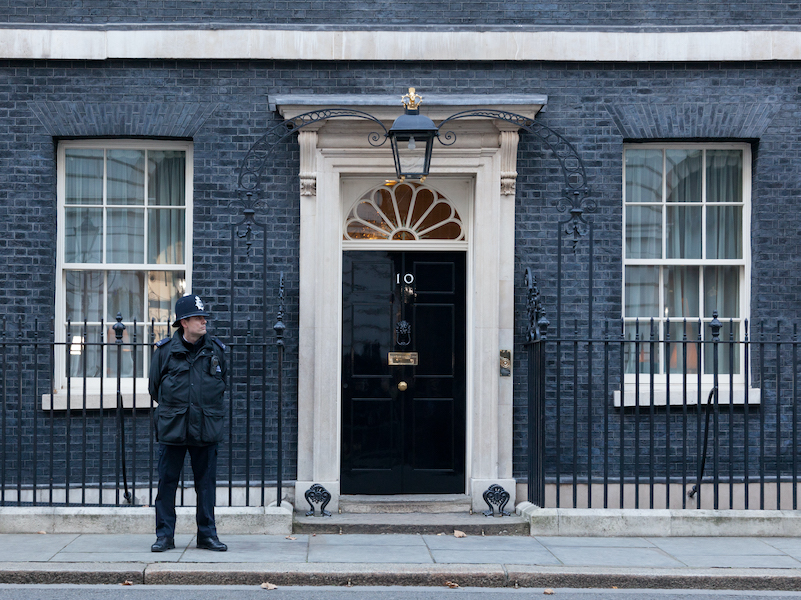Leadership for the Greater Good:
Global Thought Leaders Explore Today's Challenges
ILA’s blog launched in March 2020 amid a world struggling to make sense of the pandemic, racial inequality, and challenges to democracy. We charge our bloggers to apply their leadership knowledge and practical wisdom to inform and inspire us as we continued our work of advancing leadership knowledge and practice for a better world. Bloggers include authors from 12 countries spanning 5 continents.

If you find these reflections to be of value in your work and life, please consider becoming part of ILA’s leadership community. Join Today!

Uncharted: How to Map the Future Together
“The only thing we know about the future is that we do not know the future.” What implications does that have for leadership and the structures of our organizations, particularly amid rapidly moving crisis? How does this change the relationship between leaders, followers, and the public at large?

Leadership and Leadership Appointment Are Not Necessarily Synonymous
Often citizens assume that leaders in positions of power have the essential leadership capabilities needed for the work. However, many leaders measure their effectiveness solely on the stock market index and do not understand that effective leadership requires an intricate balance between the economy and humanity.

The COVID-19 Crisis as a Test of Followership
Is it not time we stopped asking what leaders and science can do to fight COVID-19 and ask instead what followers should be doing? Accepting that we are facing a complex and unpredictable situation, how do we stop calling for simple solutions, learn to live with uncertainty, and take responsibility for our own actions?

False Positives: A Pandemic of Prozac Leadership
Being positive can facilitate transformational leadership but taken to extremes it can become insincere and manipulative. Excessive positivity constitutes a significant barrier to reflection and learning. By silencing critical voices, Prozac leadership has hindered our leaders’ response to the pandemic.

The Deep Structure Is Our Responsibility
The implicit rules for acceptance and success are encoded in the deep structure of organizations and social groups. Recent events have reminded us that the deep structure in America is pervasive, pernicious, and even deadly. What can whites and cis-straight people do to address such a horrible legacy?

Where Is Boris Johnson? When and Why It Matters That Leaders Show Up in a Crisis
An enduring issue for leadership is the emotional effect of leaders’ presence and absence on those who look to them for direction, guidance, and reassurance. If leaders fail to show up, it sends a signal that they don’t really care. In times of crisis, care becomes a highly salient marker of effective leadership.

“Building Forward Better” – Why Women’s Leadership Matters
As we deal with the devastating impacts of the COVID-19 pandemic and its disproportionate impact on women, minorities and the poor, much has been written about the effectiveness of the leadership traits exhibited by women. What has been different in women’s leadership?

Punctuating Leadership Education and Development Into Before and After
Is this the beginning of the end of leadership education and development as we know it? If so, perhaps it is also an opportunity to forge a new agenda that addresses the challenges of the past and reimagines the value of our work for a future that may look quite different from that which came before us.

The Narrative We Feed Gets Stronger
Our world is a place where benefits and burdens are not widely shared. We have an opportunity to envision a new way of moving forward, a new narrative for ourselves, our communities, and our world. What do we want to become? Our perspectives, and the choices we make, depend on the “wolf” we feed.

Briefing: Civic Capacity and the Coronavirus
The coronavirus continues to devastate communities around the world. Given the immensity of the damage and the colossal investment needed to repair it, ensuring that our responses enhance the capacity – the resilience – of communities and regions to respond to future challenges and disruptions is imperative.

Will the Coronavirus Pandemic Change Us Forever?
We long to return to our old lives. But, at the end of this crisis, it would be a shame to simply go back to normal. If leaders do not learn from the global pandemic, they are likely to be unprepared when new problems arise. Here are five critical lessons that we and our leaders need to learn from this crisis.

A Model for Pandemic Leadership: Lessons Drawn From New Zealand’s Response to COVID-19
What are the lessons we can learn from New Zealand’s remarkable success in responding to COVID-19? This cogent analysis points to their clarity of purpose in minimizing harm to lives and livelihoods and three key leadership practices – being led by expertise, mobilizing collective effort, and enabling coping.
